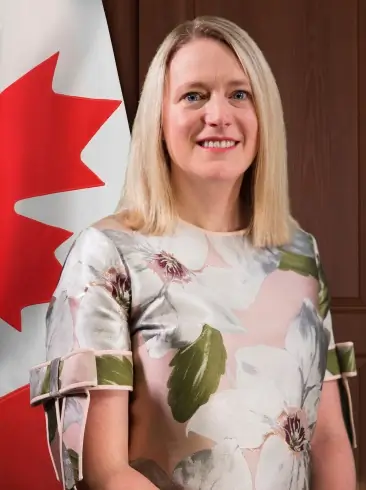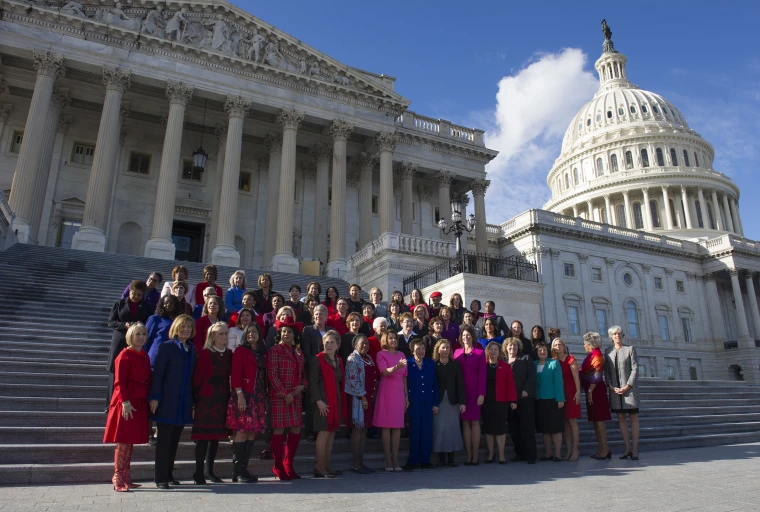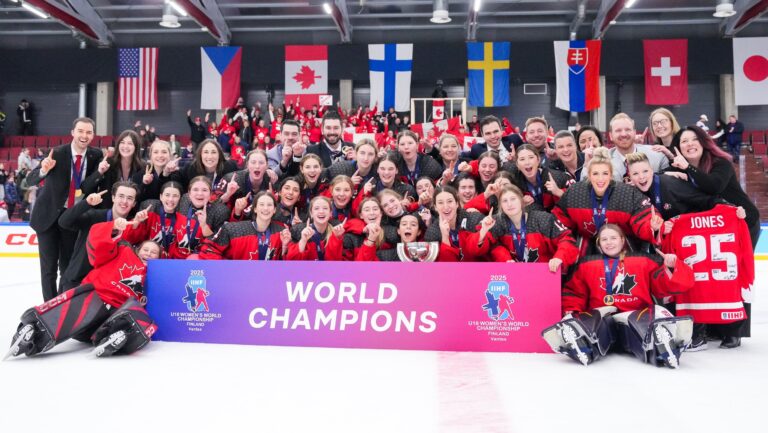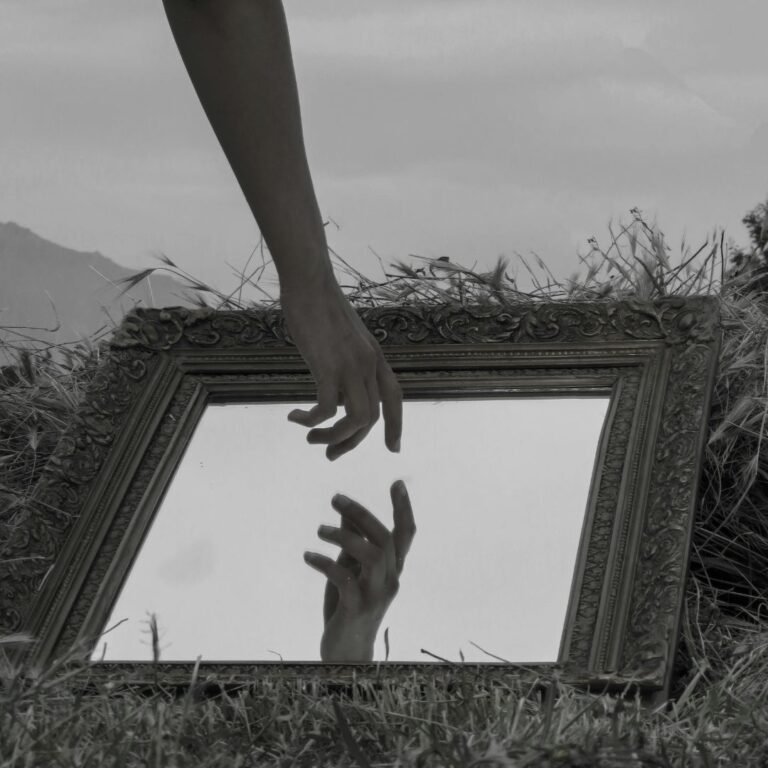Lisa Weagle — Two-time Olympian and World Champion
Two-time Olympian. World champion. Communications professional. There’s no question that Lisa Weagle is working towards and accomplishing big goals. In this episode of The Honest Talk, Jen and Catherine speak with Lisa about how she’s preparing for the 2022 Beijing Olympics with Team Jennifer Jones, her advice to young girls in sport, and how to use your voice.
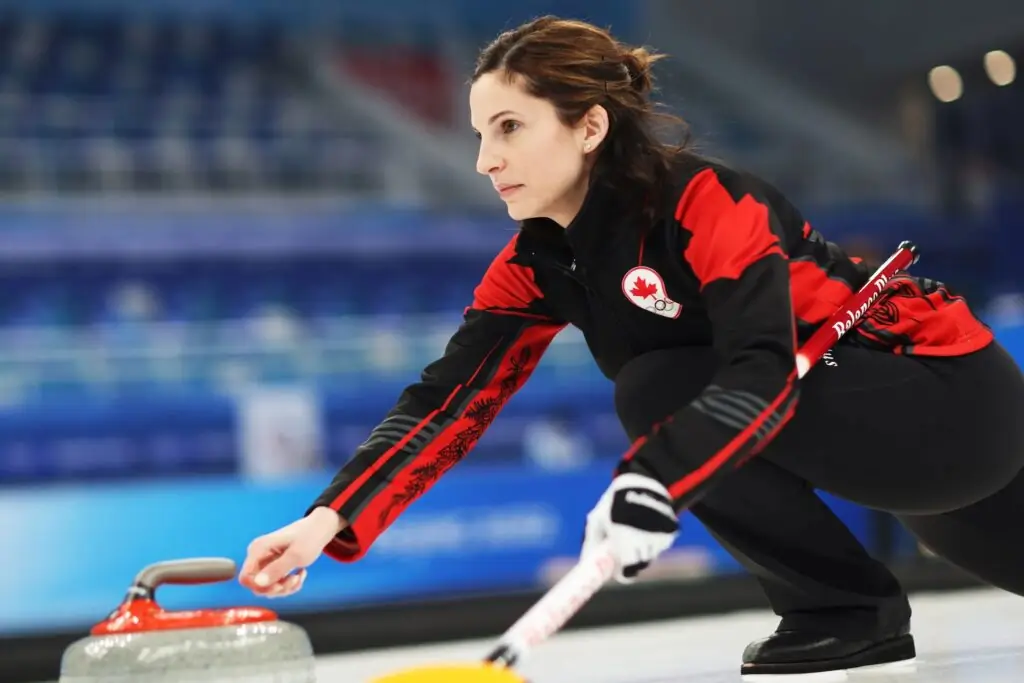
How it feels to be an Olympian again
Jennifer Stewart: It’s a huge moment, your second Olympics. What’s going through your mind right now?
Lisa Weagle: It’s still sinking in. I felt like going to the Olympics was a once-in-a-lifetime opportunity, especially being a curler from Canada. So, to be able to go a second time is just an absolute dream come true. So we’ve been celebrating and enjoying the moment, and now our focus is going to switch over to training and getting ready to do our job in Beijing.
Catherine Clark: Can you briefly discuss what that training means? What does it look like on a day-to-day basis for you?
Lisa Weagle: Training has become my full-time job to be able to compete at this level against the top teams around the world. So for me, that looks like some ice time, that looks like time in the gym, some recovery with some massage, foam rolling, things like that, making sure my nutrition, hydration, sleep, all those things are taken care of. It’s not just the physical preparation; it’s also the mental preparation and the recovery to ensure that I’m ready for the long stretch ahead and the stress that will come with the competition.
On pursuing her passion
Jennifer Stewart: What were you like as a child? Did you always have that kind of discipline and that drive?
Lisa Weagle: I was always really competitive. That was something innate that I grew up with, and living in a family of competitive people as well, that was something that came naturally to me. I don’t think I was always as disciplined. That was something I learned and a skill I had to develop and work on. But I’ve always been a member of teams that are driven and hardworking. I joined my first competitive team when I was 14, and we started ingraining some high-performance habits I’ve built on throughout my life.
Catherine Clark: When did people know that you had an undiscovered talent?
Lisa Weagle: Curling was just something I always loved. My parents only joined the sport the year before I did. They were looking for a sport to play together, and they joined the mixed league and then signed me up for Little Rocks. So I was soaking it in. I loved watching curling on TV. I had the curling heroes that I loved to watch and wanted to be like, and I wanted to go to the Scotties; I wanted to go to the Olympics. But I don’t think I was an undiscovered talent. I had to work hard and was lucky to be part of some really good teams.
Jennifer Stewart: I know from working with you that you have absolutely no ego. When something needs to get done, you do it, and you’re just so pleasant. Where does that come from? And how do you maintain that?
Lisa Weagle: It’s been great working with you as well, and I appreciate you taking a chance on me and allowing me to do some work in communications, which I love to do, and still compete. That just says volumes about who you are and what Syntax is. That attitude is just how I’ve always been and how my parents are and how they raised me. For me, it’s not about individual accolades. Maybe that’s part of being an athlete in a team sport. It’s really just about the team and putting the team first and figuring out what we can accomplish together. Now, I’ve joined a team where I’m in a different role and I’m getting less ice time, and a lot of people questioned that decision when I made it. For me, it was never about me being the shining star; it was about being on a winning team. And that’s the way I approach my work in communications, it’s the way I approach curling, and it’s the way I approach my life: just loving to see what we can all accomplish together.
Catherine Clark: What does curling give you that makes that big commitment on so many different levels worth the effort?
Lisa Weagle: Sport has always just been a passion of mine. It brings many skills: teamwork, handling adversity, goal setting. So it’s just something I’ve always been passionate about and have loved to pursue. By the same token, I love having a career and I love working. I worked in the government for many years and was very fortunate with leaders who believed in what sounds like a crazy dream. You have this 24-year-old coming to you saying, “I want to train and go to the Olympics,” and they’re saying, “Okay, we’ll give you extra leave; we’ll support your dream.” So, I’ve been very lucky to be able to manage both, and it certainly hasn’t been easy. It’s never been a 50-50 split. There have been times when curling has just had to take over. But for me, it is worth it when you can stand on the podium, go to the Olympics, and win world championships – just being able to pursue a dream and see how far I can take my passion.
Jennifer Stewart: Is there anything that you’ve had to give up because you’ve been pursuing your dream?
Lisa Weagle: Sure, lots of things. I don’t like to use the term sacrifice; I always try and think of it as a choice. But certainly, when you make a big commitment like this to a curling team, there are choices that you have to make: I’ve missed friends’ weddings, I’ve missed important milestones in people’s lives, and my career growth has had to take a backseat at different times. But for me, it’s a decision I make consciously and something I choose to do. It’s just about balance.
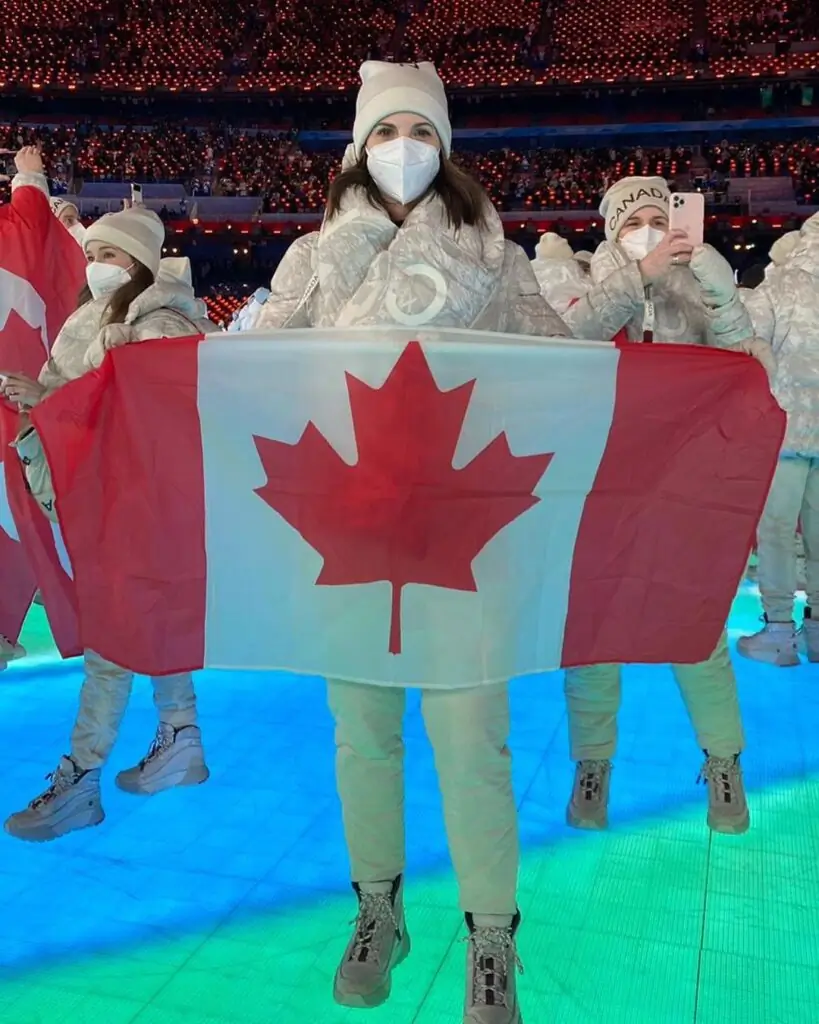
On learning from adversity and using her voice
Catherine Clark: Can you talk to us about what you’ve learned about yourself from the winning moments, but, as importantly, what you’ve learned from the losing moments in your life, too?
Lisa Weagle: I’ve learned a lot more from those losing moments than I have from the winning moments. And without those moments of adversity and loss, and disappointment, you can’t have those winning ones, or they certainly wouldn’t feel as sweet. I remember, before the 2013 Olympic trials, really feeling the pressure, like I needed to be an Olympian. I felt like I needed to win this event or my life wouldn’t be complete, or like all the work I had put in wouldn’t be worth it, and my team ended up not winning; we didn’t go to the Olympics in 2014. That felt like a massive blow to me, but I tried to look at it as an opportunity to learn, grow, and change my mindset about what I felt like I needed in my life. And so, going into that next Olympic trials for the last Olympics, I felt free to play, that the results didn’t matter. I also felt like if I did what I needed to do, played well, and was a good teammate and all those little details, the results would take care of themselves.
Jennifer Stewart: You had a pretty public breakup from your previous team, and there was a lot of negative media coverage about what happened. I think you dealt with it with grace and with class. Obviously that was a difficult moment. Did you ever think that you’d be going to the Olympics again?
Lisa Weagle: No, probably not. Like you said, Jen, that was a difficult moment. It changed my whole world and my identity. I tried to look at it as what I was gaining and what the opportunity was, not what I was losing. It became an opportunity to write a new chapter in my story and make a conscious decision about what I wanted my life to be like. Did I want to work full-time in communications and give up on curling? Did I want to keep curling? What did that look like for me? A few days later, I had the opportunity to play with Team Jones and create this five-person team and then just look forward to what was coming next. I’m grateful for all of the opportunities I had with Team Homan, and look back really fondly on that, but I’m excited about what this next chapter has given me.
Catherine Clark: I think those big moments really influence who we are as people. How did you take a positive approach rather than wallowing in misery?
Lisa Weagle: My support system helped me. The day I got that phone call, I went over to a friend’s house with my husband, and I cried and made everyone stay off their phones for the night. But we also toasted to my curling career. And that set the tone for me: “Okay, let’s just figure out what’s next.”
I’m not going to lie, there was some therapy and there were some hard times and lots of tears. But for me, a lot of it was just reconnecting with what I loved about the sport and feeling those feelings I had when I was a kid playing at the rink and just playing for fun. Last year I joined the cash league at the Ottawa Curling Club, something I last did 10 years ago. I have a team that’s a little competitive, but we also just go and have fun, and I had my dad come out and hold the broom for me in practice, something that hasn’t happened since I was a kid. And at every moment that I get to step out on the ice, particularly during a pandemic, when we didn’t even know if we would have much of a curling season, I just feel so much gratitude. And that makes this part of the journey that much sweeter for me.
Jennifer Stewart: What’s the most valuable advice you’ve ever received?
Lisa Weagle: I might have said a different answer a few years ago. Now, I think I would say that you have the power to write your story and to make your own decisions about how you want to respond to particular events. Learning to frame things that have happened to me and make decisions about what I want to do next has served me in the last year or two.
You have the power to write your story and to make your own decisions about how you want to respond to particular events.
Lisa Weagle
Catherine Clark: Sometimes women don’t voice their thoughts and opinions. What do you say to those women?
Lisa Weagle: I am those women sometimes and have been and continue to be. Sometimes it’s hard to stand up and use your voice. In school I remember I would sit there really quietly, and I only wanted to raise my hand if I was confident that I had the right answer. I think there are still times in my life when I’m afraid to speak up, but I also know that I have a voice and an opportunity to speak for other women, and that was part of why I advocated for equal pay for women at national championships.
In curling, we’re very lucky. We have equal TV time, and the sport’s come a long way regarding equality. But that was one last piece I felt it was important to use my voice for. In doing that, working on a board, and doing my communications work, I’m getting more and more confident at being able to use my voice.
Jennifer Stewart: If you could go back and give eight-year-old Lisa some advice, what would you say?
Lisa Weagle: When I work with youth and curling and just young girls in sport, one thing I say is to just talk to yourself in a more positive way. I was so hard on myself; I was a perfectionist, and nothing was ever good enough. And, even still to this day, I try to talk to myself in a kinder, gentler way. One of the exercises one of my sports psychologists had me do was, instead of writing down positive affirmations from my point of view, think about what a coach, a friend, or a loved one would say.
A young girl reached out to me last week and asked for some help with some coaching; she was feeling nervous. And so I gave her that activity. And then I got a message from her saying, “I had to make a tough shot to win. And before I threw it, I said, ‘You can do this; Lisa believes in you.’” It makes me so happy to hear that my voice is helping someone else. And I’ve had other voices in my head trying to help me and coach me along the way. So basically I would just say
Be kind to yourself and talk to yourself like your friend or loved one would.
Lisa Weagle
Catherine Clark: I think that is such valuable advice. And you also have to know that things are not always going to go your way. What do you tell women to help prepare them for those times when things don’t go their way?
Lisa Weagle: That’s just a part of life. And it’s unfortunate; often it’s something we have no control over. So, learn what you can from those experiences, take what you can from them, and realize that if something didn’t go your way, it wasn’t meant for you at that time. But you have a choice. When things don’t go well for me in curling, I always think ‘I could walk away from the sport right now; I could stop playing.’ Instead, I choose to learn what I can from it, work harder, and avoid making the same mistake the next time.
Learn what you can from those experiences, take what you can from them, and realize that if something didn’t go your way, it wasn’t meant for you at that time.
Lisa Weagle
Jennifer Stewart: What’s next for you? What’s your next big goal?
Lisa Weagle: I’m trying to enjoy this moment because I’ve worked hard to get here and don’t want to wish this one away. I just want to savour the moment and enjoy every second because it has been a lifetime of work to get here. And then, after that, there are some big questions about what comes next. Usually, with curling, we plan everything on a four-year Olympic cycle. So I’ll have to make some decisions. But for now, I just really want to savour the moment.

